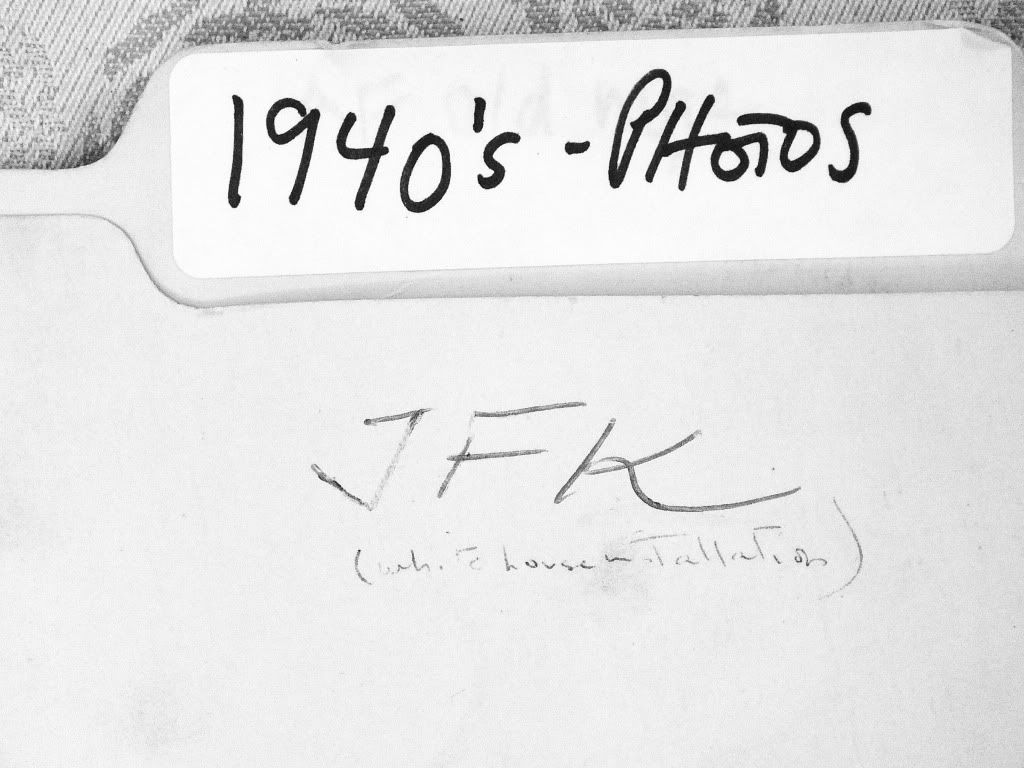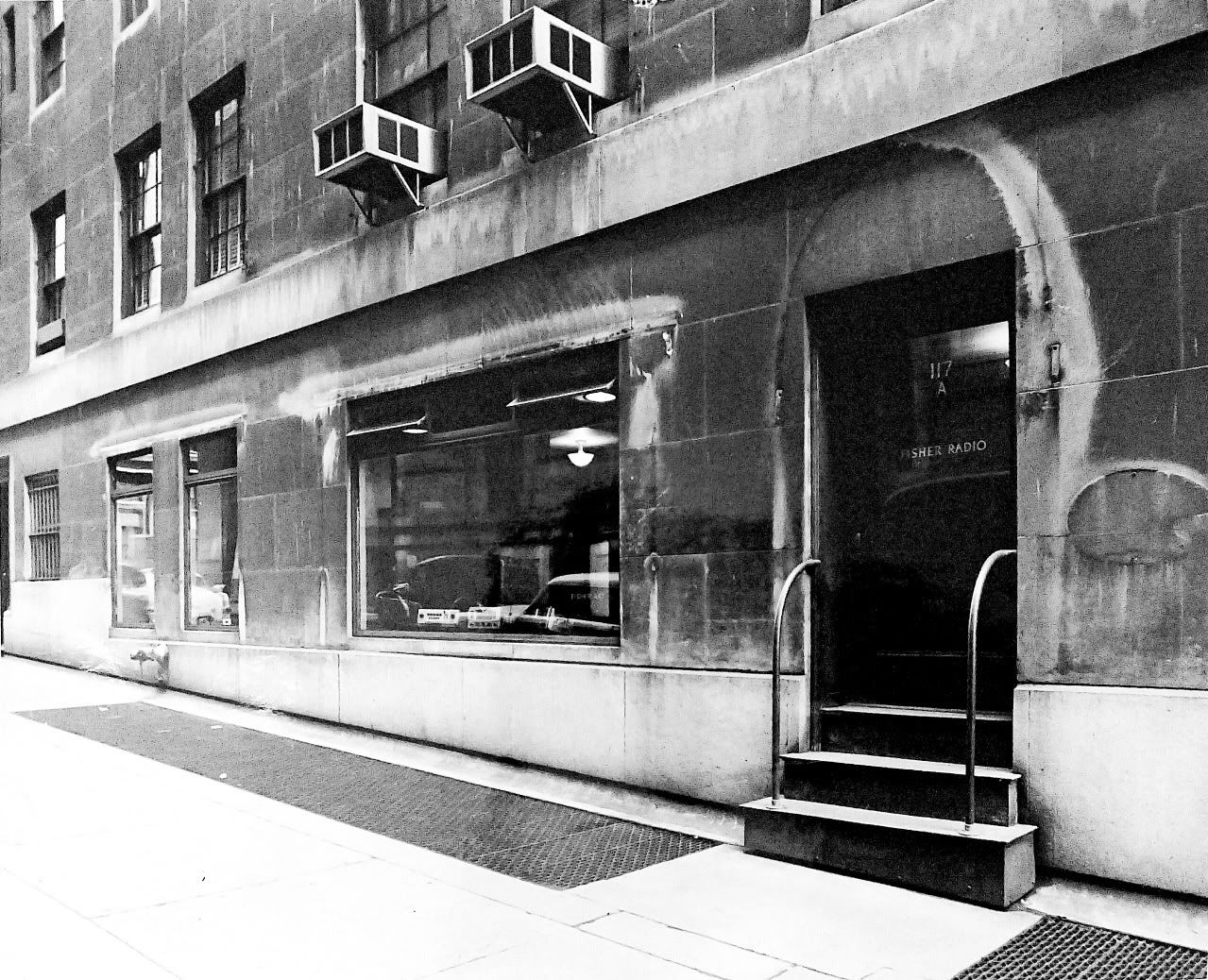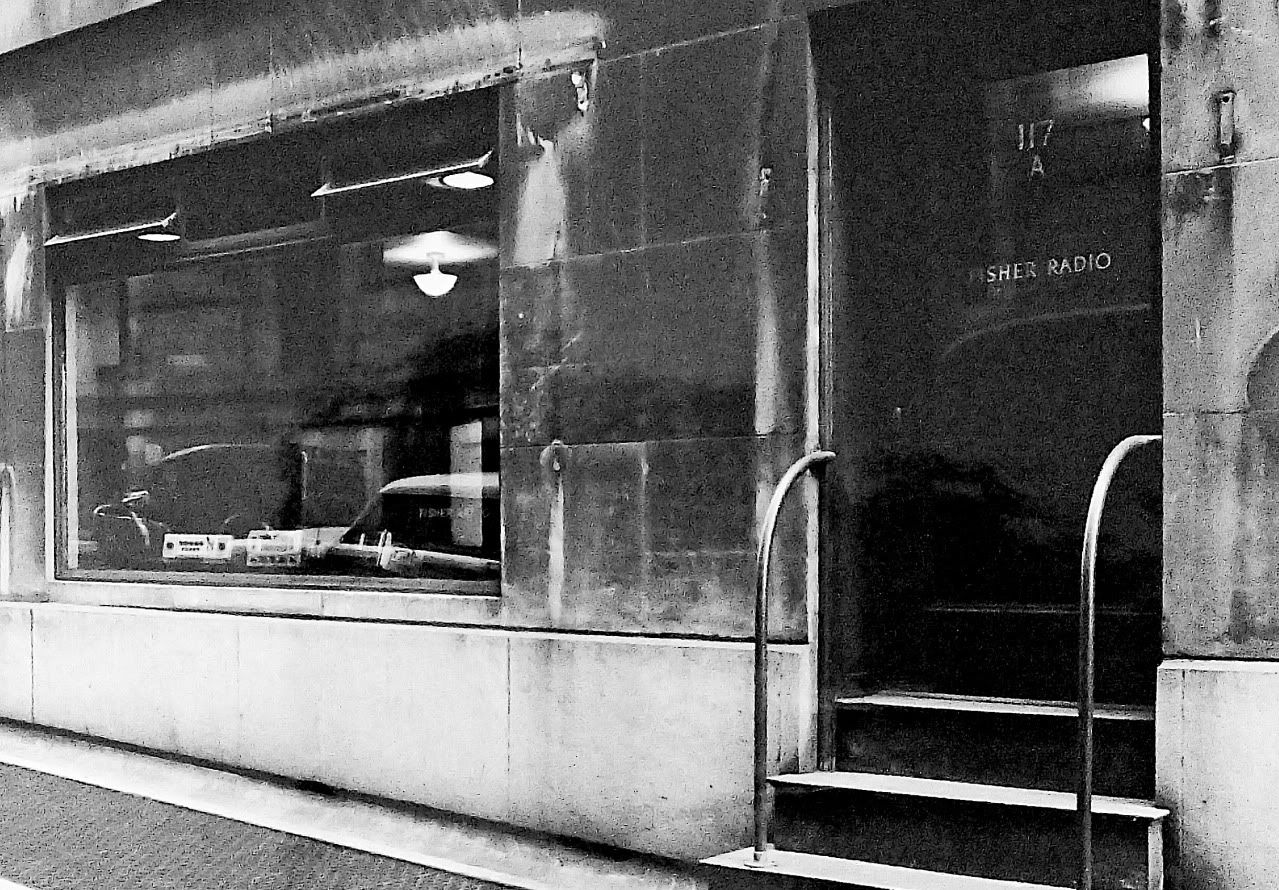TheRed1
Console Conservationist
Late last month I had the opportunity to go through Avery Fisher’s personal records prior to their donation to the Julliard School Library at the Lincoln Center. Avery Fisher’s son, Chip, graciously allowed me to spend the day at his Manhattan home digging through four file boxes of old documents and photos. There were many items I recognized of which I already had copies; but much of the material was completely new to me.
Chip had previously gone through all of his father’s records and had it pretty well organized into folders by subject and date. He set me up in his dining room and left me to it. Throughout the day he was in and out with appointments to keep and errands to run. I had a chance to talk with him only briefly about his father’s history as he checked in on me between his comings and goings. For much of the day I think I was the only one there.
During one such quiet spell I heard someone come in. When I looked up there was a young man standing in the doorway. Obviously he didn’t know who I was or what I was doing there and I had no idea who he was - though he did look vaguely familiar. I stood up, shook his hand, introduced myself and tried my best to explain my purpose without sounding too much like a Fisher stalker. He turned out to be Chip’s son - Avery Fisher's grandson - and he was just as personable and pleasant to talk to as his father.
It had to be a bit odd for him to encounter a stranger in his family’s dining room who knew so much about his grandfather. I was gratified that he seemed quite interested in his family’s history. He was especially curious about his grandfather’s connection to JFK. I showed him the file folder I had found (photo below); explaining that his father had apparently repurposed it and that I had been unable to find its original contents. More on that later.
For this trip I cobbled together a desktop mic stand with a gooseneck attachment and a camera mount adapter so I could make photographic copies. It was not an ideal arrangement but it saved me from having to lug boxes of irreplaceable, one-of-a-kind documents through the streets of Manhattan to the nearest Kinkos. Working as fast as I could from 8:30 AM straight through to 5 PM, I managed to make it through all four boxes. I ended up with almost 700 exposures which I have spent the subsequent weeks since my return cleaning up on PhotoShop and organizing into folders.
I had already amassed a fairly impressive collection of Fisher-related material. However, this one trip easily doubled that. The first thing I did was to archive the photos onto 7 CDs. Since then I’ve been concentrating on the earliest material concerning Avery Fisher’s first venture, the Philharmonic Radio Co., 1937-1943. It is the least known period of Fisher's history and I find it fascinating - especially since I am one of the very few lucky enough to have a piece of it.
I’ve emptied two ink cartridges and the better part of an entire ream of paper printing hard copies. I used up all the plastic sheet protectors I had and just ran out and bought three more boxes. I now have all my Philharmonic Radio documents organized into four binders: one for newspaper ads; one for sales literature and other sales related documents; one for legal documents involving the Philharmonic trademark lawsuit and one for service and owners manuals as well as (the most amazing item - in my opinion) the original company ledger which details - set by set and sale by sale - the Philharmonic Radio Company’s entire output from 1940 through 1943.
The ledger lists every conceivable detail - down to the cabinet finish and chassis number - of every radio-phonograph Philharmonic manufactured during this period which accounts for roughly 80% of their total output. (Less than 700 units - at least 668). Amazingly, with my poor memory, I recalled enough details about my own Philharmonic Futura K-1 to be able to find it in the ledger. It was sold on Sept. 3, 1942 which was much later than I would have thought. Just as I was packing up to leave, Chip stopped by to see how I was doing. I took the opportunity to proudly show him the entry for my Philharmonic. I also asked him about the JFK folder. He said he had taken that material and had it framed. It was likely in storage in a closet somewhere though he wasn't sure exactly where. He did say he would try to locate it for me.
Now what am I going to do with all this information? Of course I will happily answer any questions you guys have. Write a book? Maybe - but that is a daunting prospect. My wife says I should but who reads books these days? And who’s got the time and energy to write them, let alone the money to publish? All I can think of is all the new avenues of research this new information could potentially open. How does one decide when one knows enough of the story to begin to try to tell it? I seem to communicate best using the AK post format with a fairly narrow focus on some particular aspect of Fisher history - equivalent to a magazine article in scope. I’m not sure if I’m capable of condensing everything down into one all-inclusive, comprehensible, linear narrative. Perhaps a blog format would suit my purposes best.
Suggestions? Questions?

Chip had previously gone through all of his father’s records and had it pretty well organized into folders by subject and date. He set me up in his dining room and left me to it. Throughout the day he was in and out with appointments to keep and errands to run. I had a chance to talk with him only briefly about his father’s history as he checked in on me between his comings and goings. For much of the day I think I was the only one there.
During one such quiet spell I heard someone come in. When I looked up there was a young man standing in the doorway. Obviously he didn’t know who I was or what I was doing there and I had no idea who he was - though he did look vaguely familiar. I stood up, shook his hand, introduced myself and tried my best to explain my purpose without sounding too much like a Fisher stalker. He turned out to be Chip’s son - Avery Fisher's grandson - and he was just as personable and pleasant to talk to as his father.
It had to be a bit odd for him to encounter a stranger in his family’s dining room who knew so much about his grandfather. I was gratified that he seemed quite interested in his family’s history. He was especially curious about his grandfather’s connection to JFK. I showed him the file folder I had found (photo below); explaining that his father had apparently repurposed it and that I had been unable to find its original contents. More on that later.
For this trip I cobbled together a desktop mic stand with a gooseneck attachment and a camera mount adapter so I could make photographic copies. It was not an ideal arrangement but it saved me from having to lug boxes of irreplaceable, one-of-a-kind documents through the streets of Manhattan to the nearest Kinkos. Working as fast as I could from 8:30 AM straight through to 5 PM, I managed to make it through all four boxes. I ended up with almost 700 exposures which I have spent the subsequent weeks since my return cleaning up on PhotoShop and organizing into folders.
I had already amassed a fairly impressive collection of Fisher-related material. However, this one trip easily doubled that. The first thing I did was to archive the photos onto 7 CDs. Since then I’ve been concentrating on the earliest material concerning Avery Fisher’s first venture, the Philharmonic Radio Co., 1937-1943. It is the least known period of Fisher's history and I find it fascinating - especially since I am one of the very few lucky enough to have a piece of it.
I’ve emptied two ink cartridges and the better part of an entire ream of paper printing hard copies. I used up all the plastic sheet protectors I had and just ran out and bought three more boxes. I now have all my Philharmonic Radio documents organized into four binders: one for newspaper ads; one for sales literature and other sales related documents; one for legal documents involving the Philharmonic trademark lawsuit and one for service and owners manuals as well as (the most amazing item - in my opinion) the original company ledger which details - set by set and sale by sale - the Philharmonic Radio Company’s entire output from 1940 through 1943.
The ledger lists every conceivable detail - down to the cabinet finish and chassis number - of every radio-phonograph Philharmonic manufactured during this period which accounts for roughly 80% of their total output. (Less than 700 units - at least 668). Amazingly, with my poor memory, I recalled enough details about my own Philharmonic Futura K-1 to be able to find it in the ledger. It was sold on Sept. 3, 1942 which was much later than I would have thought. Just as I was packing up to leave, Chip stopped by to see how I was doing. I took the opportunity to proudly show him the entry for my Philharmonic. I also asked him about the JFK folder. He said he had taken that material and had it framed. It was likely in storage in a closet somewhere though he wasn't sure exactly where. He did say he would try to locate it for me.
Now what am I going to do with all this information? Of course I will happily answer any questions you guys have. Write a book? Maybe - but that is a daunting prospect. My wife says I should but who reads books these days? And who’s got the time and energy to write them, let alone the money to publish? All I can think of is all the new avenues of research this new information could potentially open. How does one decide when one knows enough of the story to begin to try to tell it? I seem to communicate best using the AK post format with a fairly narrow focus on some particular aspect of Fisher history - equivalent to a magazine article in scope. I’m not sure if I’m capable of condensing everything down into one all-inclusive, comprehensible, linear narrative. Perhaps a blog format would suit my purposes best.
Suggestions? Questions?





